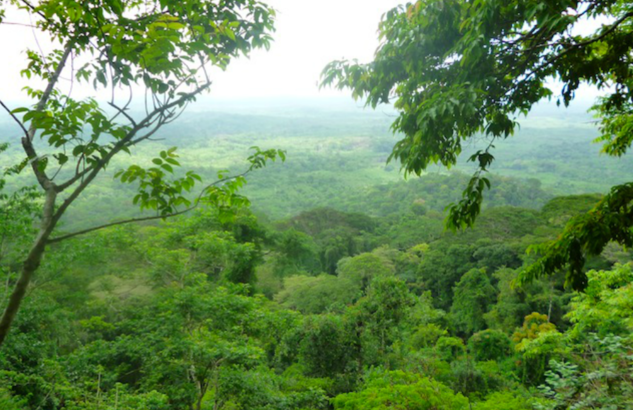Miners claim they have Class ‘C’ mining licenses, but refuse to display them.Illicit miners have invaded the Gola Forest National Park, extracting gold and diamonds from one of Liberia’s five protected areas and smuggling them across the border to Sierra Leone, local authorities say.
Gola Forest National Park cuts across Sierra Leone and Liberia. Residents of Porkpa District, Grand Cape Mount County, say, miners, especially Sierra Leoneans, have encroached on the 88,000-hectare park, digging huge pits and felling trees. That violates the Mineral and Mining Law, and the Wildlife Law of Liberia, and undermines the intent of the establishment of the park created in 2015 to help protect Liberia’s rich biodiversity.
“Illicit mining of gold and diamonds in the protected forest is denting the efforts of conservationists,” says Lucing Fofanah of Vainga Agriculture Development and Management Consultancy, a local nongovernmental organization in Mano River Kongo. “You can’t tell people not to go into the forest, and then other people go there to mine. It is undermining.”
Fofanah’s claims are corroborated by Michael Garbo, executive director of the Society for the Conservation of Nature of Liberia (SCNL) that worked with the Forestry Development Authority (FDA) in establishing the park. SCNL co-manages the park.
“It is a pity as a country to sit and see the Gola Forest National Park go the way it is going,” Garbo says. “If we don’t take immediate action to halt illegal activities in and around the Gola Forest National Park, all of the sacrifices made to set up the park will go down the drain.”
The park is home to a large variety of native plants and animals, including 206 bird species, 109 mammal species, and 31 rodents and shrews. It is part of the remaining Upper Guinea Rainforest, one of the world’s biodiversity hotspots.
A number of international organizations, including the United States Agency for International Development (USAID), European Union (EU), Rain Forest Trust, and government of Norway are supporting the FDA to manage the park.
Kumeh S. Assaf, who coordinates USAID’s West Africa Biodiversity and Climate Change Project that provides nearly US$3 million to the park, agrees that it is “unfortunate” intruders have invaded the park but says support for the park will still come. “[Illicit mining] didn’t start today; people were living on those resources,” says Assaf, stressing that the future of the park lies in the provision of alternative livelihood for residents who depend heavily on the forest.
Some miners claim they have class “C” licenses from the Ministry of Mines and Energy, but they refuse to allow this reporter to see them. They also claim that where they are working is not part of the protected area and that their mines have existed even before the start of the civil war in 1989.
“What do we stand to benefit?” Cheapea Yanquah, one of the miners near Camp Alpha on the Gbarpolu side of the park, questions the rationale of declaring an area, rich in deposits of diamonds, as a forest reserve. “From the day I was born in Gbarpolu, our people have been digging diamonds here,” says Yanquah. “How will we survive and send our children to school if you want to stop us from looking for diamonds, which is our source of livelihood?”
An abandoned pit near the Gola National Forest Park
Camp Alpha is a populated mining camp in Gbarpolu County. It is a 90-minute ride on motorbike from Lofa Bridge. Felled trees, abandoned hill-sized piles of gravel, and large, open pits line the route to the infamous camp. Huge concrete stones stand every three kilometers to demarcate the camp from the park. Signboards at the park’s boundaries with major towns show endangered species and brandish the warning: “Keep off.”
Johnson Wallabo, Assistant Minister for Planning at the Ministry of Mines and Energy, dismisses the allegation that the ministry issues licenses to the illicit miners. “Our licensing regime excludes national parks and protected areas of forest, so if you see anyone going into a protected forest that person is illegal,” he says. “Everywhere you go–to Ghana, Ivory Coast, and Guinea–artisanal small scale mining has become a very serious problem.”
The ministry, in October, placed a moratorium on the issuance of class “C” licenses across the country.

